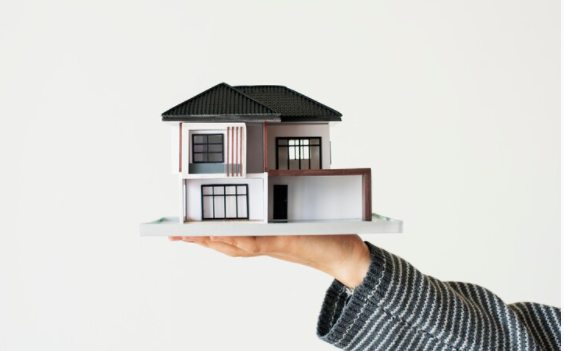The coronavirus epidemic has had a substantial impact on how individuals desire to live and work at home, according to new research commissioned by the Royal Institute of British Architects (RIBA).
Homeowners in the United Kingdom are increasingly expecting environmentally friendly homes that support their new lifestyles. As well as their mental health, happiness, and family cohesiveness. Several houses for sale in Aylesbury were also recently renovated and refurbished to include extra space for home office .
According to the RIBA’s research, the majority of homeowners (70 percent of survey respondents) believe their home’s design has impacted their mental health during the pandemic. People have been more stressed (11 percent), apprehensive (10 percent), and depressed (10 percent). As a result of spending more time at home.They have found it more difficult to relax (9 percent), and their productivity has suffered as a result (6 percent ).
The research conducted by the RIBA aimed to determine the mental and physical benefits of living in a better-designed home. According to the findings, 23% believe that a better-designed home will make them happier; they’ll be able to relax more (31%), and sleep better (23%). (17 percent ).
Working from home has become the “new normal” for many people, according to the findings, and 15% of them wish to modify the design of their home to help them be more productive. With families spending more time together at home, more than one in ten (11%) believe that making improvements to their home’s design .
In recent months, homes have evolved into the office, school, and gym, while also serving as a place to unwind and recover from daily tensions and strains, affecting entire households. According to the RIBA’s research, many people are aware that their present home can not accommodate all of these distinct functions and users. People might feel good about themselves if their home design represents who they are – their values, needs, and hobbies. A home that is designed to meet one’s needs can also make people feel more in control, which is especially important when life feels uncertain.
- After the lockdown, eight out of ten respondents (79%) indicated one or more adjustments they’d like to make to the design of their home, including:
- Nearly a quarter of homeowners (23%) would rearrange their current living quarters. A fifth wants to expand their home to make extra room.
- Almost one-tenth of those surveyed (9%) would change their open-plan layout in favour of constructing separate rooms. 14 percent, on the other hand, want to make their home more open concept.
- More environmental design features are desired by 40% of respondents increased natural light.
- 8 percent want more adaptable living spaces, such as rooms that can be readily partitioned.
- To facilitate working from home, 17% would establish an office area.
- 7% want to be able to accommodate extended family members such as parents, grandparents, and grown children.
- More personal space is required by 12% of the population.
As the UK’s property market blew up during the coronavirus outbreak, Britons spent billions of pounds on house upgrades. 5 million Britons redecorated rooms in their homes, 1.5 million erected an outhouse, and over a million built home-gyms and extensions while confined to their homes for much of the year due to various pandemic lockdowns.
According to exclusive data shared with Yahoo Finance UK, British consumers spent £110.3 billion ($156 billion) on home upgrades last year, up over 30% from the previous year. According to the data from Powered Now, Brits have spent an average of £2,011 per person on house renovations, while the average property value in the UK has increased by 10.9 percent.
The most prevalent reasons for house modifications during the lockdown period, according to separate research, were shed offices, home theatres, and snugs. The coronavirus pandemic has caused British households to reconsider their housing needs, resulting in an increase in demand for family homes with gardens, parking, and additional room to work from home.
The most prevalent reasons for house modifications during the lockdown period, according to separate research, were shed offices, home theatres, and snugs. The coronavirus pandemic has caused British households to reconsider their housing needs, resulting in an increase in demand for family homes with gardens, parking, and additional room to work from home.
While it’s a sellers’ market in a lot of states some homeowners prefer to remain in their homes and use their equity in their homes . While these are wonderful features for homeowners however, they can also increase the home’s value. According to a study by the Joint Center for Housing Studies at Harvard University, spending on home renovations. It was not just rising during pre-pandemic years in the U.S. pre-pandemic but is expected to grow.
The recent growth in the U.S. economy, tight inventory of homes for sale, and good gains on home equity have all contributed to a rise in home improvement activities. The Joint Center has announced in an announcement that homeowners are predicted to spend upwards of $330 billion for home improvements. It replacements to regular maintenance in the coming year.
Cost vs. Value Report
If you’re looking to make a change to your house soon. You may be thinking what home improvements will yield the highest return on investment. The latest Cost vs. Value Report released by Remodeling magazine gives some excellent insights into this topic.
The report analyzes with 21 the top popular home improvement projects. It also includes information for the entire nation either by region or by city. It concluded that homeowners nationwide are not getting as much of a profit from their home improvements like they did in the past. On average, homeowners can anticipate to recover around 56% of their renovation in costs 64% in the pre-pandemic.
What Home Renovations are most likely to yield the greatest Return on Investment?
The top 15 home improvements that the report predicts will earn the greatest returns across the nation. And the proportion of expenses homeowners should anticipate recouping when they sell their home:
- Garage Door Replacement? 98.3%
- Made Stone Veneer? 97.1 %
- Wood Deck Addition? 82.8%
- Minor Kitchen Remodel? 81.1%
- Siding Replacement? 76.7%
- Window Replacement using Vinyl Windows? 74.3%
- Universal Design Bathroom? 70.6%
- Bathroom Remodel? 70.1%
- Window Replacement using Wood Windows? 69.5%
- Need Roofing Repair? 68.4%
- Fiberglass Grand Entrance? 67.6%
- Composite Deck Incorporation? 63.6%
- Bathroom Addition? 59.9%
- Major Kitchen Remodel? 59.0%
- Master Suite Addition? 56.6%





More Stories
The Benefits Of Living In Hadley Heights II
No Doc or Low-Doc Home Loans